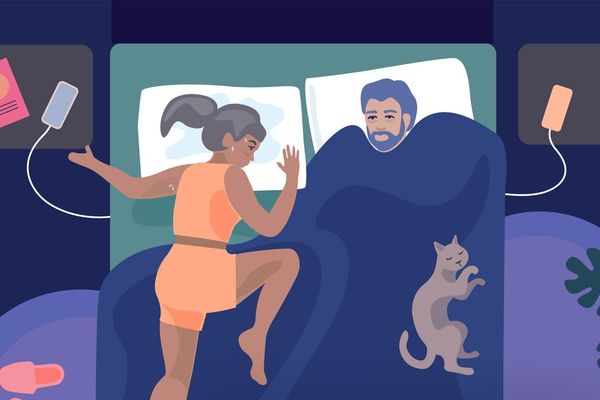We love the sun. We hate the sun.
And the reasons make sense.
We love it for its ability to get things to grow. The sun is vital for most life on earth—without it, vegetation can't exist, and without vegetation, we can't survive.
We love it because when it shines down, it makes almost everything look—and feel—better.
But we may hate or fear the sun, too. And it's not just because of its size—almost 110 times the diameter of the Earth—but because of its power to harm. Its radiation can cause sunburns,
premature skin aging, skin damage, skin cancer and damage to our eyes.
Yet, to be fair, let's give the sun its due. After all, it can be beneficial for our overall health.
- The sun can boost your mood and ease depression. Sunlight increases levels of serotonin, a mood enhancer, in the brain. It's not surprising that serotonin levels are highest in the summer. And when serotonin levels are low, people may get SAD, or seasonal affective disorder—a form of depression triggered by the changing seasons. Increased sunlight helps people feel happy, calm and focused, too.
- The sun can improve bone health. Vitamin D is vital to maintaining healthy bones—and practically impossible to get in sufficient quantities through food alone, though you can add vitamin-D enriched foods and/or take vitamin D supplements. You can also go out in the sun. Your body makes vitamin D when your bare skin is exposed to sunlight. But you need not stay out unprotected for long: You should expose your skin for about half the time it takes it to begin to burn, says the Vitamin D Council. The precise amount of time varies, depending on the time of day, where you live in the world, the color of your skin, your age, how much skin you expose and other environmental factors. In some parts of the world, it's impossible to get enough vitamin D from the sun during winter.
- The sun can help lower blood pressure. British scientists found a mild effect of sunlight on blood pressure. The top layer of skin stores nitric oxide, which, when it reacts to sunlight, dilates blood vessels as the oxide moves into the bloodstream, thus lowering blood pressure.
- The sun helps treat psoriasis and other disorders like acne, eczema, jaundice and fungal infections of the skin. The sun is a beneficial therapy—in the right amount—for helping to improve psoriatic arthritis as well.
- The sun might help prevent certain non-skin cancers. If you are deficient in vitamin D, a little sun exposure, which can help boost that vitamin, could reduce the risk of dying from internal cancers like breast, colon, prostate and lung.
Of course, while some sun exposure may be good, it doesn't mean that more is better. Keep your unprotected sun exposure brief. If you are going to be out more than a few minutes,
use sunscreen and other precautions, like hats, sunglasses and umbrellas when you're outside—even if it's cloudy.
One handy tool is the
UV Index, which tells you how quickly your skin will burn without protection in the sun. It measures UV intensity levels on a scale of 1 to 11 calculated for every zip code across the United States.







